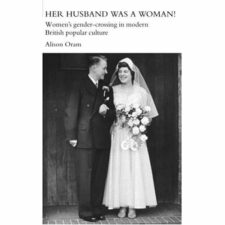The small consciousness-raising groups that characterised the early Women’s Liberation Movement (WLM) underlined the political and psychological importance socialist feminists attached to process and affect when it came to redefining the concept of politics. Instead of a left politics that was situated externally to members’ personal lives, defined in terms of effect, external structural theory, paper sales and mass demonstration tactics, Women’s Liberation called upon women to understand their relationship to the group and the movement in psychological terms of internal attachment and change. This revised concept of revolution called upon members to participate politically by changing the way they lived as well as how they conducted themselves in the political arena.
This article is based on oral narratives of a selection of women who joined three of Britain’s first Women’s Liberation groups in 1968 and 1970 respectively: the first and second Tufnell Park groups and the Belsize Lane group. I argue that revisiting accounts of women who joined some of Britain’s earliest consciousness-raising groups reveals a more complex picture of subjectivity than the straight-forward cultural script of social and emotional re-birth, often presented in relation to the beginnings of Women’s Liberation. Women’s stories show how experience within the Tufnell Park and Belsize Lane groups was shaped by demands for women to negotiate two competing external, social and political forces: mainstream post-war society and the new political culture where activists sought to embrace libertarian social and political patterns.
The women’s narratives reveal how individual and collective experience within the Tufnell Park milieu was profoundly shaped by the internal imprint each member brought from their upbringing, from their relationship to the external social world and the activist scene in which many had come of age. As they embarked upon collective and individual efforts to incorporate the ‘new politics’ into their personal lives and political activities, not only did they question familiar contradictions about their social situation and cultural engagement as women, they also met unanticipated psychic challenges that arose from within themselves and between each other.
Efforts to achieve greater fluidity between the public and private, for the personal to inform and become political, were often highly challenging for young women raised within the conservative landscape of postwar Britain where the two spheres existed separately. Sue Crockford spoke on behalf of Belsize Lane members when she considered how they had been raised never to question the notion that private matters were not for public discussion outside the family. She felt it was often hard to start talking about intimate affairs even with other women. The narratives signalled the enduring dislocations women had identified in the Movement, but which they could not so readily overcome even after immersing themselves within it.
Sue Crockford’s testimony illustrated how the process of remembering tensions shaped the construction of her narrative. Crockford was a member of the first Tufnell Park Women’s Liberation group, set up in 1968. Previously, she had been a core member of a North London branch of the VSC, the Camden Vietnam Solidarity Campaign (CVSC). Alongside her Australian partner, Tony Wickert, she had taken responsibility for a radical film collective, Angry Arts, linked to the group and was active within both this and her women’s groups until the couple separated in 1971. From the start of the interview Crockford repeatedly shifted backwards and forwards from one topic to another, from one experience to the next, never answering any single question at any time. She continuously repositioned herself between the collective ‘we’ and the private ‘I’: from the public arena of political activity, from details of campaigning in Camden against the Vietnam War, and activity inside the WLM, before returning suddenly to occupy the private personal core. Her reluctance to concentrate on her private life during her dual activity in Angry Arts and Women’s Liberation pointed to tensions that had arisen from efforts to incorporate her politics into her private life and to reconcile conflicting political and personal loyalties between the two groups.
Collectively, with the political ideas of Women’s Liberation behind them, and with the emotional solidarity of their groups guiding them, left thinking women embarked on trying to dissolve the divisions between their adherence to a set of ideas and how they lived their private lives. The tensions came not only from objections male partners voiced to taking a greater share of childcare and domestic tasks, but often the most profound psychic challenges the women encountered emerged from deep within themselves.
Celia Hughes is a postgraduate at Warwick University. Read the rest of her article on activist women in the Spring 2012 edition of the Women’s History Magazine– out soon!
